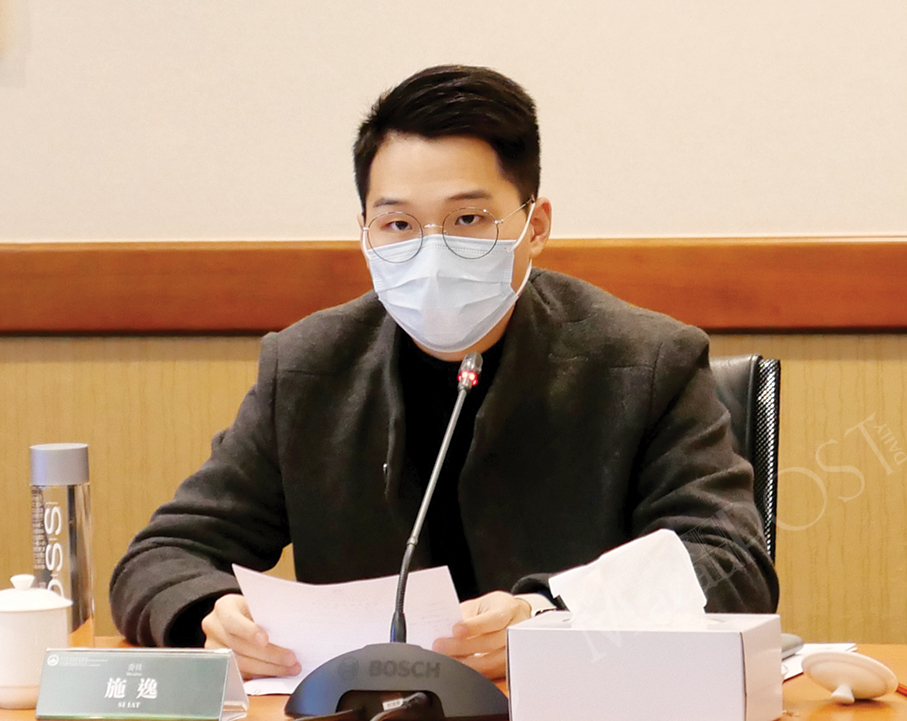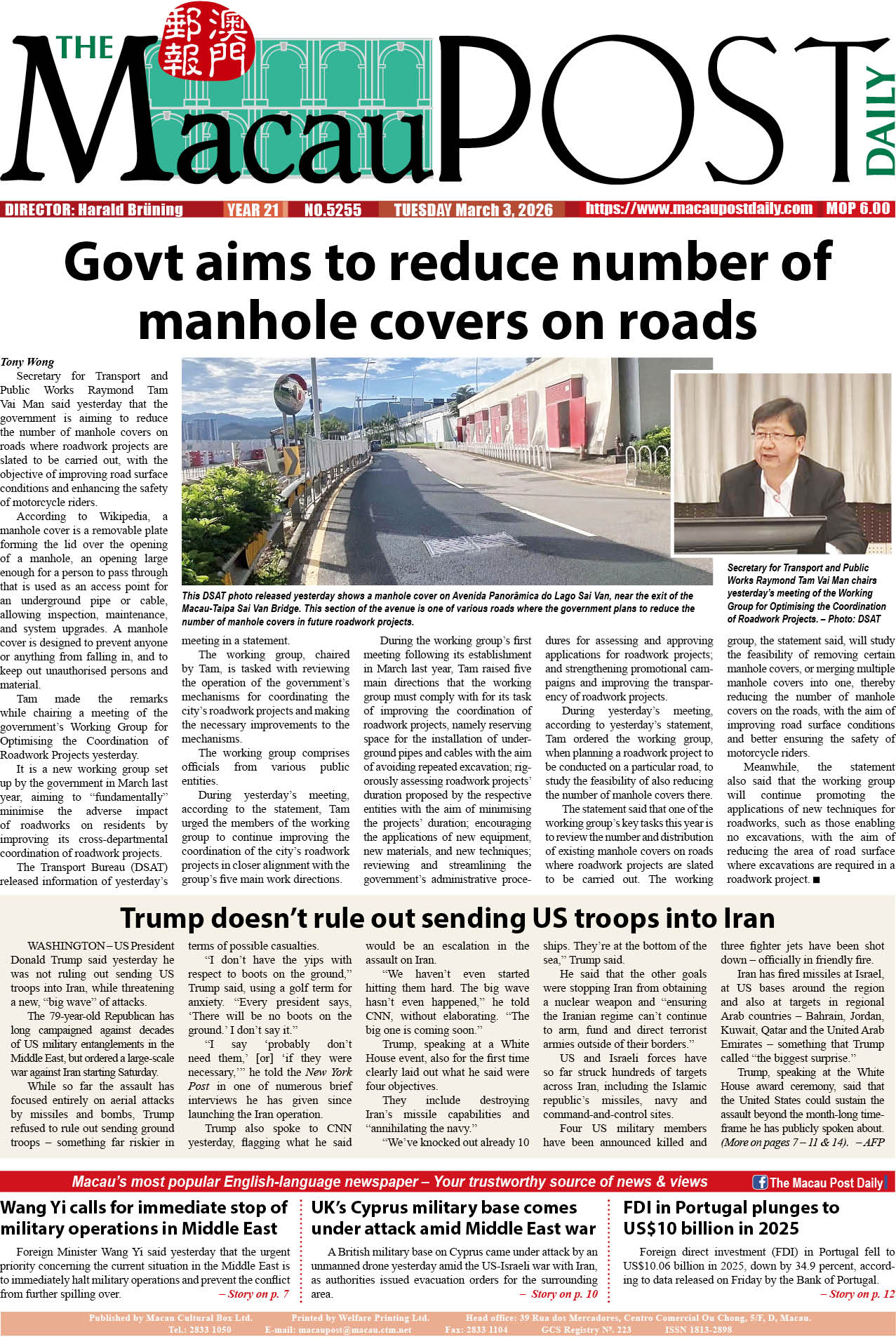Members of the Northern District Community Service Consultative Council urged the government yesterday to refer to the mainland’s “Double Reduction” policy in order to enhance the local education system.
They made the suggestion during a regular meeting of the council at the Government Service Centre in Areia Preta district yesterday afternoon.
Council member Chung Kin San said that the Education and Youth Development Bureau (DESDJ) should refer to the “Double Reduction” policy by “comprehensively” reducing the amount of homework as well as strictly regulating off-campus training to reduce parents’ education expenditure burden.
Chung also suggested that the percentage grading system should not apply to primary students below Primary 4. Furthermore, Chung noted that parents and students should change their perspective and consider choosing vocational high schools or colleges in order to reduce youth unemployment rates.
According to fellow council member Si Yat, the DSEDJ should refer to the “Double Reduction” policy in order to improve and cultivate students’ creativity and independent learning abilities as well as to foster the education sector’s high-quality development.
Fellow councillor Chan Chi Weng referred to the “Made in China 2025” concept and the United Nations Educational Scientific and Cultural Organisation (UNESCO) Information for All Programme (IFAP), pointing out that information technology and thinking are vital skills for civil society’s future development. Chan underlined that the government should refer to successful cases to establish a public platform for local residents to enjoy learning.
“Made in China 2025” is a national strategic plan and industrial policy of the Communist Party of China (CPC) to further develop the nation’s manufacturing sector.
‘Double Reduction’ policy issued by Ministry of Education
“Double Reduction” policy refers to a reduction in homework and time spent on after-school private tutoring for children from kindergarten to ninth grade. It was issued by the Ministry of Education (MOE) in Beijing last year.
The policy is designed to protect families from “falling prey to anxiety mongering private businesses” and reduce “unnecessary school burdens” for children, according to an MOE statement last year.
The statement stressed that the policy aims to prevent unauthorised and unlicensed tutoring activities online, adding that the ministry has instructed live streaming platforms such as TikTok –known in the Chinese mainland as Douyin (抖音) to ban such tutoring activities.
The statement quoted Lv Yugang, director-general of the Department of Basic Education under the ministry, as saying that “the number of offline training companies shrank by 83.8 percent and online ones by 84.1 percent”. Thus, 10 provinces have reduced children’s school burdens by 90 percent while 12 provinces have restructured 95 percent of tutoring institutions as non-profits.

Si Yat, a member of the Northern District Community Service Consultative Council, addresses the council’s regular meeting at the Government Service Centre in Areia Preta district yesterday afternoon. Photo: Ula Cheang








